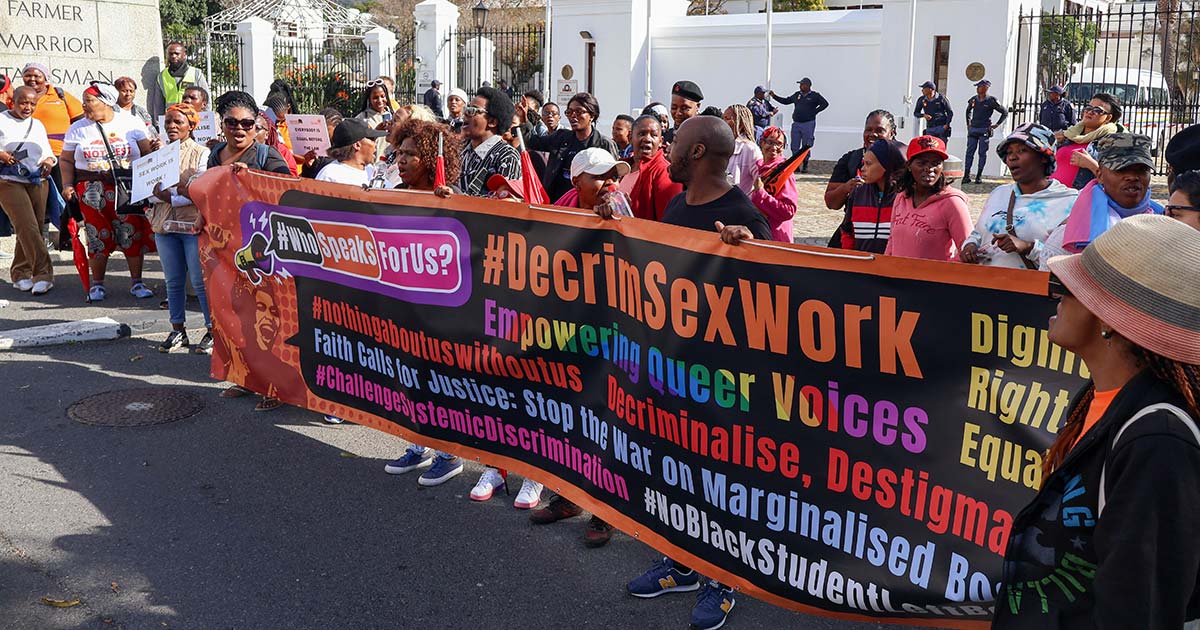Sex Workers Picket at Parliament Ahead of Elections

Sex workers and activists protested outside Parliament, calling for the decriminalisation of sex work to be fast-tracked, among other demands. (Photo: Liezl Human)
Over 50 sex workers and civil society activists picketed outside Parliament in Cape Town on Thursday.
The group, led by the Sex Workers Education and Advocacy Taskforce (SWEAT), launched its #WhoSpeaksForUs campaign, aimed at political leaders ahead of the elections next week as a “reminder that leadership should reflect the diversity of the people it serves”.
Megan Lessing, SWEAT spokesperson, said that the picket was “symbolic” as there were no politicians in Parliament on Thursday.
The campaign seeks to rally support for the decriminalise sex work and the fight for equality of all people regardless of their race, sexuality or class.
Sex workers at the picket said they worry about whether there would be political support for the decriminalisation of sex work after the elections.
The current draft bill, which has been through extensive public consultations, decriminalises sex work to ensure better protection for sex workers from violence, among other aims. However, critics of the bill say it does not provide for the effect it will have on existing regulations.
In May last year, deputy minister of the Department of Justice John Jeffery noted that state law advisors raised concerns that the bill “may not pass constitutional muster if it does not also provide for the regulation of sex work”, GroundUp previously reported. This means that the revised bill would be in the hands of the newly elected Parliament.
Nomsa Conguia, acting provincial coordinator at Sisonke National Sex Worker Movement, said that as elections loom, their members are asking, “Who speaks for us in Parliament? Who is representing us?”
Other advocacy groups joining the picket included Gender DynamiX, the Asijiki Coalition for the Decriminalisation of Sex Workers, Triangle Project, Imbawula Queer Podcast, Gender Equity Unit.
Belinda Qaqamba, from Gender DynamiX, a grassroots transgender-rights organisation, said that the picket was “a moment that calls for solidarity”. Addressing to the crowd, Qaqamba said, “We are also part of the struggle. We are part of the story and narrative of this country.”
“None of us are free until all of us are free,” the group said in a statement.
This article by Liezl Human was first published on GroundUp.
Leave a Reply